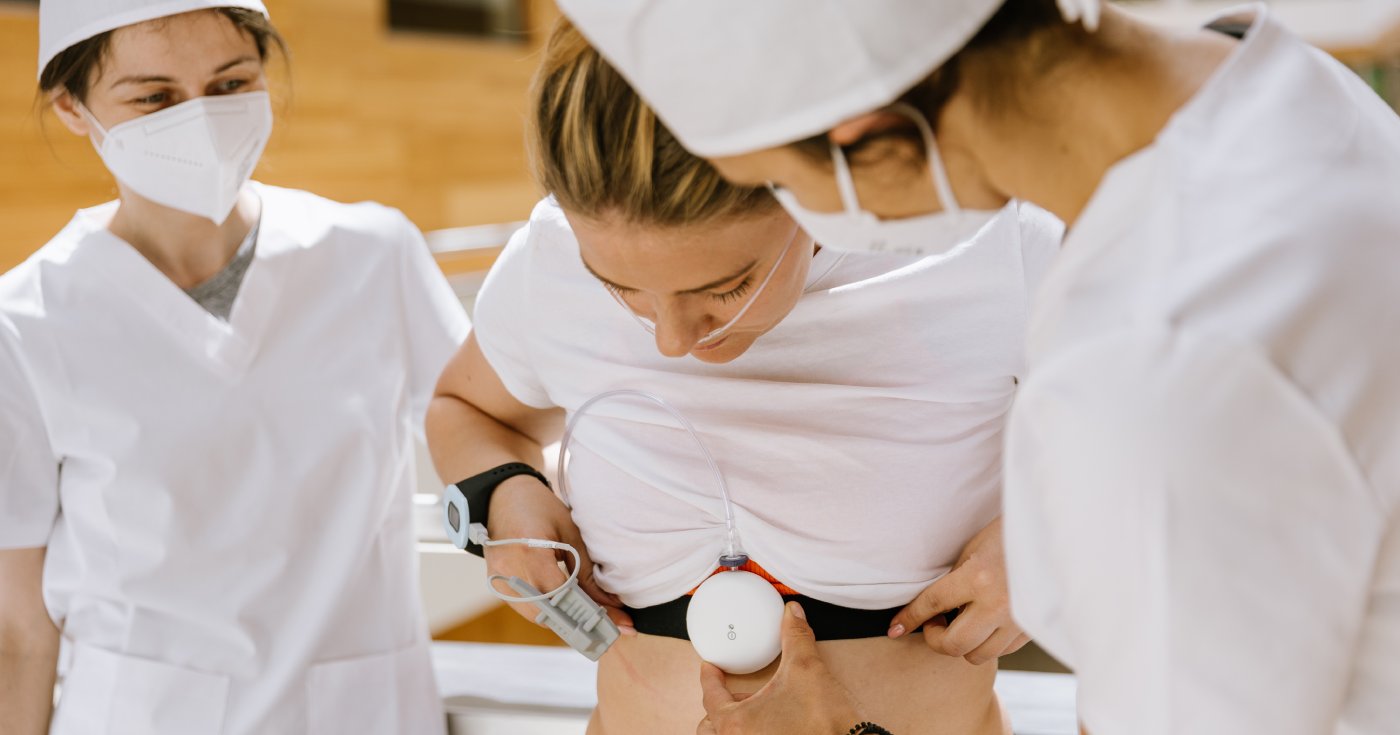See how a five-center consortium monitored 600 COVID-19 and long-COVID patients with Aidmed One to predict deterioration at home. The study combined saturation, ECG, bioimpedance, cough audio, and symptoms to craft telemedicine guidelines and AI alerts that kept hospitals ahead of demand.
Between 2021 and 2022, Aidmed One was utilized in a study conducted by the Medical Research Agency to investigate the long-term effects of COVID-19. The result was the development of suggestions for the care of patients with acute COVID-19 and long-COVID.
The Consortium
University of Warmia and Mazury in Olsztyn
Principal Investigatordr hab. n. med. Anna Doboszyńska, prof. UWM
Technological partnerAidlab (Aidmed)
FunderMedical Research Agency
- University Clinical Centre in Gdańsk
- Klinika Pulmonologii Uniwersyteckiego Szpitala Klinicznego w Olsztynie
- Oddział “COVID” Uniwersyteckiego Szpitala Klinicznego w Olsztynie
- Specjalistyczny Szpital Wojewódzki w Ciechanowie
- Mazowiecki Szpital Specjalistyczny w Radomiu
Mission
The mission of the study was to provide a telemedicine system to facilitate healthcare professionals in:
- Following up with COVID-19 patients, post-COVID patients, and those with respiratory or cardiac arrhythmias;
- Developing guidelines for the management of COVID-19 patients treated at home;
- Predicting disease progression using artificial intelligence.
Patient monitoring
600 patients were remotely monitored for parameters such as saturation, heart rate, ECG, pulmonary bioimpedance (respiration), skin surface temperature, cough (sound pressure), cannula air pressure/flow, device/patient position, and history and current disease symptoms.

Machine learning methods potentially contributed to the detection and prediction of patient deterioration and the worsening of observed symptoms (including at-risk patients) in a timely manner.
New Functionalities
The aim of the study was the validation of a telemedicine solution based on the Aidmed Cloud in the optimization of the management of patients with:
- a diagnosis of COVID-19 in mild form (asymptomatic or modestly symptomatic) with an emphasis on reducing the need for hospitalization;
- respiratory and cardiac rhythm disorders with an emphasis on increasing the safety and comfort of the patient with chronic conditions.
Based on the analysis of the signals obtained, the patient’s condition was assessed and methods were developed to predict sudden intensification of COVID-19 symptoms. The project resulted in:
- Development of recommendations for the management of patients with a diagnosis of COVID-19 (mild or asymptomatic) treated at home using telediagnostics;
- A solution for the remote observation of patients by a medical facility (based on automatically recorded biosignals and automatic assessment of the patient’s condition using algorithms based on artificial intelligence methods);
- Validation of the solution through pilot implementation in selected medical facilities;
- A unique database of biosignals allowing further research on COVID-19 pathophysiology.
Research Study and Clinical Trial
Thanks to the activities of entities like the Ministry of Health or PTEiLChZ (ID and Epi Society), the course of COVID-19 disease in hospitalized patients has been well described in many databases and articles.
The importance of ongoing observation and monitoring of the health status of patients remaining in home isolation using remote diagnostics seemed to be a necessity given the availability of technology and the epidemiological situation.
However, the effectiveness of the non-pharmacological health intervention (in our case, telemedicine monitoring) needed to be confirmed in a clinical trial.
Working Hypothesies
The implementation of ongoing surveillance (performed on a relatively continuous basis) of patients in home isolation may (as verified in a clinical trial followed by an observational study):
- Primary endpoint – reduce the number/duration of hospitalizations (LOS rate) by 20%;
- Secondary endopoint - increase patient comfort (subjective and objective index on psychological scales) by 30%.
Project funded by the Polish Agency for Medical Research




